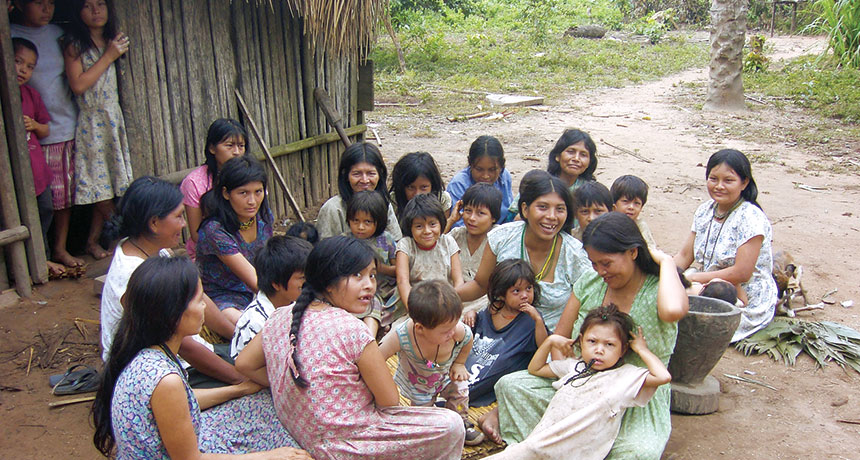Having parasites can boost fertility
Women infected with giant roundworms have more babies

EXTRA BABIES Roundworms may act as a fertility aid: Tsimane women in Bolivia infected with the intestinal parasites may have more children than uninfected women.
Michael Gurven







